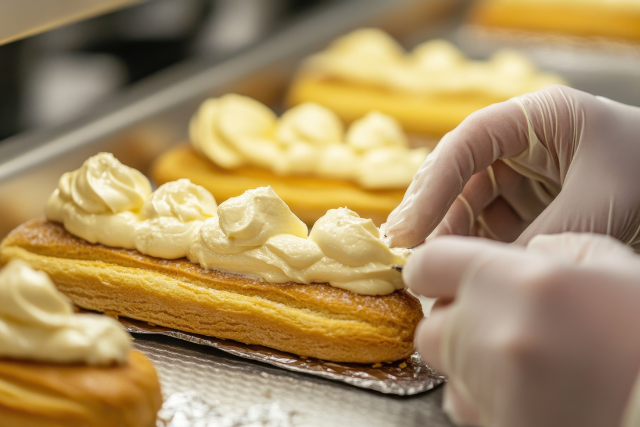
For many aspiring chefs, passion begins at home or in small kitchens, but refining that passion into a professional path requires structure. The Center for Culinary Arts (CCA) in the Philippines is one of the institutions known for shaping future chefs through comprehensive programs that combine technique, discipline, and creativity. More importantly, culinary schools like CCA Manila help students uncover their style.
In this article, we’ll explore how culinary schools help students go beyond mastering recipes and techniques to uncover their personal culinary identity.
Building Foundations Through Culinary Arts Courses
Every chef’s journey begins with the basics. Before one can experiment with flavors or invent signature dishes, it is necessary to understand knife skills, food safety, kitchen organization, and the proper handling of ingredients. Culinary schools introduce these essentials through structured culinary arts courses that teach discipline and consistency.
Many programs like the Professional Chef Plus come into play. The course simplifies fundamental cooking techniques. Students learn not only how to prepare dishes accurately but also why certain methods work. For many, this foundation becomes the bridge between casual cooking and professional practice, encouraging a shift in mindset from hobbyist to serious learner.
Another option for those starting their journey is the Fundamentals in Culinary Arts course. The short program is for individuals who want to build confidence in the kitchen, whether they are budding entrepreneurs or professionals already in food service. By introducing learners to essential cooking principles, it provides the building blocks for personal expression while giving them a safe space to make mistakes and improve.
Expanding Horizons Through Specialized Training

Once students have a foundation, the next step is to explore specialized areas that allow them to express personality and creativity.
The Fundamentals in Baking & Pastry Arts program is a good example. For many aspiring pastry chefs, this program is the first step toward finding their voice in a field that values technical precision and artistic presentation.
Meanwhile, for those looking to immerse themselves in a long-term, comprehensive pathway, the Diploma in Culinary Arts & Technology Management provides extensive coverage of culinary and managerial skills. Students begin with hands-on training in the kitchen before progressing into business-related topics such as operations and management. Graduates often start as line cooks or chef de partie in established restaurants. Still, the diploma opens up future career paths as executive chefs, corporate chefs, R&D chefs, food entrepreneurs, or even restaurateurs.
By combining creativity with management know-how, the program equips graduates to shape their own culinary identity and the identity of food businesses they may one day lead.
The Role of Mentorship and Guidance
Beyond structured courses, mentorship is central to how students grow and discover their unique culinary identity. While formal training provides the techniques, it is often the guidance of experienced instructors that helps learners understand what it truly means to cook with purpose. Mentors go beyond demonstrating skills; they share stories, philosophies, and insights drawn from years in the industry. This transfer of wisdom shapes a student’s technical ability and values in the kitchen, including how they treat ingredients, approach sustainability, and balance creativity with discipline.
In the cooking class environment, students benefit from direct observation. They watch how seasoned chefs respond to challenges in real time, from salvaging a dish that didn’t go as planned and adjusting flavors to suit an audience to elevating a simple preparation into something memorable. These moments teach adaptability, problem-solving, and resilience, which are just as important as technical knowledge.
Mentorship also helps learners connect their cultural background and personal experiences with professional expectations. A student might discover that traditional flavors from home can inspire contemporary dishes, or that techniques rooted in family cooking traditions have a place in modern gastronomy. Instructors encourage this process, guiding students in recognizing when to honor tradition and when to break away, giving them confidence to innovate without losing authenticity.
Exposure to Culinary Traditions and Modern Practices
One of the benefits of enrolling in the best culinary schools in the Philippines is the wide range of exposure. Students study Filipino culinary traditions while also learning international cuisines. This experience broadens their creative vocabulary and helps them discover unique ways of blending influences.
Modern practices are also part of the curriculum. Techniques such as sous vide cooking, molecular gastronomy, and plant-forward menu design encourage learners to think about food differently. With these insights, students begin to integrate contemporary ideas into their personal styles.
Opportunities for Experimentation
Culinary identity grows through experimentation. Programs like a culinary arts diploma or degree give students structured opportunities to test their creativity. In this environment, they can combine flavors, explore plating techniques, and attempt original concepts without the risks of a commercial kitchen.
Some learners find their calling in pastry, others in savory dishes, while many develop a passion for fusion that reflects cultural intersections. Schools encourage exploration that leads to discovery and then a culinary arts degree.
Building Confidence Through Practice
Confidence in the kitchen comes from consistent practice. Culinary schools devote significant time to hands-on work, where students repeat essential tasks until they become natural.
Practical exercises, such as timed services or collaborative projects, often mirror professional conditions. These challenges prepare students for the pressures of the industry. Success in these exercises confirms that their personal ideas can work in real-world settings, reinforcing the strength of their culinary voice.
The Value of Peer Learning
Peers also influence identity. Students bring varied backgrounds into the classroom, creating a diverse learning environment. Exposure to different traditions and perspectives inspires new ideas and broadens culinary imagination.
Collaboration teaches students to respect diversity while developing their own style. Many discover new directions through teamwork, adding depth to their identity as chefs.
Discover Your Culinary Identity at CCA Manila!
Culinary schools provide the environment where skill, creativity, and discipline come together. At CCA Manila, students shape their culinary identity through practical training, mentorship from industry experts, exposure to diverse cuisines, and the freedom to experiment.
Recognized as one of the best culinary schools in the Philippines, CCA Manila equips graduates with confidence and direction, ensuring they stand out in the competitive culinary field.
Apply now and begin your training with CCA Manila!
